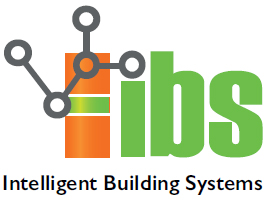
Webinar
ZENNER IoT Forum – Introducing the ZENNER IoT Gateway Outdoor 16
Webinar hosted by ZENNER14 Nov 2024 - 14 Nov 2024
14:00 - 14:45 Europe/Berlin

Webinar
c21-virtual Presents – The 5G Journey… the 6G Destination 24.v2: Hyperconverged TMT Networks… Space + Terrestrial Multi Play
7 Nov 2024 - 7 Nov 2024
14:00 - 15:00 Europe/London

All Members Meeting
LoRa Alliance Town Hall Meeting – Members only!
16 Oct 2024 - 17 Oct 2024
- America/Los_Angeles

Meetup
Satellite IoT Delivered – Expanding your IoT Use Cases
2 Oct 2024 - 2 Oct 2024
10:00 - 11:00 Europe/Amsterdam

Webinar
IoT for Climate Resilience and a Sustainable Future
27 May 2024 - 27 May 2024
02:00 - 03:00 America/Los_Angeles

Trade Show
North Carolina Manufacturing Conference
Sponsored by TagoIO13 May 2024 - 14 May 2024
08:00 - 17:00 America/New_York

Webinar
Overcoming Adoption Challenges for Smart Cities Success
26 Mar 2024 - 26 Mar 2024
08:00 - 09:00 America/Los_Angeles

Webinar
LoRaWAN® CSMA to Minimize on Air Collisions
This webinar will showcase the newly developed Technical Recommendation (TR013).30 Jan 2024 - 30 Jan 2024
07:00 - 08:00 America/Los_Angeles

Webinar
Crafting IoT Solutions: A Real-World Dive into a Smart Pool Solution
23 Nov 2023 - 23 Nov 2023
05:00 - 06:00 America/Los_Angeles

Webinar
Smart Utilities Webinar
Water Utility Infrastructure Modernization for Efficient and Sustainable Operations14 Nov 2023 - 14 Nov 2023
08:00 - 09:00 America/Los_Angeles

Conference
LoRa Alliance member Actility at GITEX 2023
16 Oct 2023 - 20 Oct 2023
08:00 - 17:00 Asia/Dubai

Webinar
Ultra Low-Power Asset Tracking with Semtech, AWS and TEKTELIC
4 Oct 2023 - 4 Oct 2023
08:00 - 17:00 America/Los_Angeles

Webinar
Multi-Dwelling Building Management Made Smarter with LoRaWAN®
Hear how four innovative companies are using LoRaWAN® for better building management!27 Sep 2023 - 27 Sep 2023
08:00 - 09:00 America/Los_Angeles

Webinar
LoRaWAN® Security—the Foundation for a Secure System
In this webinar, we will discuss best practices in IoT security.12 Sep 2023 - 12 Sep 2023
07:00 - 08:00 America/Los_Angeles

Webinar
LoRaWAN® Device-to-Device Communication using Multicast Transmissions
25 Jul 2023 - 25 Jul 2023
08:00 - 09:00 America/Los_Angeles

Conference
Internet of Things Conference 2023
Enabling the Internet of Things future for the Philippines26 Jun 2023 - 28 Jun 2023
- Asia/Manila

Conference
ACE23
Hosted by the American Water Works Association12 Jun 2023 - 14 Jun 2023
- America/Toronto

Webinar
Simplify smart home connectivity with LoRaWAN® devices
31 May 2023 - 31 May 2023
07:00 - 08:00 America/Los_Angeles

Webinar
LoRaWAN® standard expands to include Relay Specification
4 Oct 2022 - 4 Oct 2022
07:00 - 08:00 America/Los_Angeles

Webinar
Cloud-Based IoT Solutions for Sustainable Buildings
28 Sep 2022 - 28 Sep 2022
08:00 - 09:00 America/Los_Angeles

All Members Meeting
LoRa Alliance Face-to-Face Committee Meeting – Paris
8 Jul 2022 - 8 Jul 2022
- Europe/Paris

Webinar
Augmenting LoRaWAN Devices with Internet Protocol Support
14 Jun 2022 - 14 Jun 2022
07:00 - 08:30 America/Los_Angeles

Webinar
Actility Webinar: Building optimized working conditions and space management strategy through IoT
14 Jun 2022 - 14 Jun 2022
08:00 - 09:00 America/Los_Angeles

Webinar
Making Building Infrastructure Smarter with LoRaWAN®
9 Jun 2022 - 9 Jun 2022
10:00 - 11:00 America/New_York

Webinar
Uniting Bright Minds for IoT
Murata Speaks - Monthly Webinar Series19 May 2022 - 19 May 2022
13:30 - 13:30 Australia/Sydney

Webinar
LoRa Alliance® building block specifications of firmware updates over the air (FUOTA)
10 May 2022 - 10 May 2022
07:00 - 08:00 America/Los_Angeles

Webinar
Opportunities & Capabilities Created by the Inclusion of the LR-FHSS Modulation in LoRaWAN®
12 Apr 2022 - 12 Apr 2022
07:00 - 08:00 America/Los_Angeles

Webinar
Guidance and Recommendations for LoRaWAN® End-Device Implementors
30 Mar 2022 - 30 Mar 2022
07:00 - 08:00 America/Los_Angeles

Webinar
MEMBERS ONLY WEBINAR | Ask the Analyst: Steve Hoffenberg of VDC Research
10 Mar 2022 - 10 Mar 2022
07:00 - 08:00 America/Los_Angeles

Webinar
How to become a great ThingPark Market Seller
3 Mar 2022 - 3 Mar 2022
11:00 - 13:00 Europe/Paris

Webinar
LoRaWAN®: Teknik Özellikleri, Uygulama Alanları, Yeni Gelişmeler
17 Feb 2022 - 17 Feb 2022
16:00 - 17:00 Europe/Istanbul

Webinar
Indoor Tracking with LoRaWAN® by Quuppa and Actility
20 Jan 2022 - 20 Jan 2022
11:00 - 12:30 America/New_York

Webinar
MuRata Webinar: Easy and Secure Connection Solutions Anytime and Anywhere
20 Jan 2022 - 20 Jan 2022
13:30 - 15:00 Asia/Jakarta
Webinar
Webinar: A Revolutionary Way To Measure Noise and Take Corrective Measures For Your City and Enterprise
8 Dec 2021 - 8 Dec 2021
16:00 - 17:00 Europe/Paris


Webinar
Actility Webinar: LoRaWAN Romaing and Network Collaboration
7 Dec 2021 - 7 Dec 2021
17:00 - 17:00 Europe/Paris


Meetup
LORIOT Business Connect – Public Server Edition
30 Nov 2021 - 30 Nov 2021
16:00 - 23:59 Europe/Paris


Webinar
Key infrastructure and LoRaWAN® Network Server features for industrial IoT deployments
4 Nov 2021 - 4 Nov 2021
- Europe/Paris


Workshop
Broadband World Forum
Driving a BroadBand-Enabled Connected World12 Oct 2021 - 14 Oct 2021
- Europe/Amsterdam


Webinar
Must-Have Answers for Your LoRaWAN® Project
5 Oct 2021 - 5 Oct 2021
10:00 - 17:00 America/New_York


Networking
IoT Tech Expo – North America
Powering the Connected World with IoT29 Sep 2021 - 29 Sep 2021
13:40 - 14:20 Europe/London


Webinar
LoRaWAN® Frontline: Actility Webinar Series
Episode 2: LoRaWAN and Edge Computing23 Sep 2021 - 23 Sep 2021
- Europe/Paris


Webinar
Sustainability and IoT Webinar
The critical link for net zero, climate adaptation, and energy and water security21 Sep 2021 - 21 Sep 2021
13:00 - 14:30 Australia/Brisbane


LoRaWAN Event
IoT Tech Expo – Global
Powering the Connected World with IoT13 Sep 2021 - 13 Sep 2021
- Europe/London


LoRaWAN Event
How LoRaWAN® Delivers Quantifiable ROI for IoT
29 Jul 2021 - 29 Jul 2021
11:00 - 12:00 America/New_York


LoRaWAN Event
LoRaWAN’s Meteoric Rise in Driving IoT Deployments in North America
15 Jul 2021 - 15 Jul 2021
14:00 - 15:00 America/New_York


Webinar
Connectivity for IoT Digital Symposium
23 Jun 2021 - 24 Jun 2021
08:00 - 14:30 America/New_York


Other
LORIOT Business Connect
The Matchmaking event to connect IoT Solution Providers to their Clients is back with a special edition18 Jun 2021 - 18 Jun 2021
- America/Los_Angeles


Webinar
LoRaWAN® Driving IoT Growth Across Brazil in All Markets
LoRaWAN® impulsionando o crescimento da IoT em todo o Brasil em todos os mercados25 May 2021 - 25 May 2021
14:00 - 15:00 America/Sao_Paulo


LoRaWAN Event
Destination LoRaWAN: Sustainable Smart Buildings of the Future
20 May 2021 - 20 May 2021
10:00 - 11:00 America/New_York


Webinar
Subeca & ACWA “Think Outside the Meter Box” webinar
19 May 2021 - 19 May 2021
10:00 - 11:00 America/Los_Angeles


LoRaWAN Event
IET: LoRaWAN – an engineering view on the technology and protocol for today’s IOT world
17 May 2021 - 17 May 2021
19:30 - 21:30 Europe/London


LoRaWAN Event
LoRaWAN: The Agile Game Changer for Industry 4.0
29 Apr 2021 - 29 Apr 2021
10:00 - 11:00 America/New_York


LoRaWAN Event
CONNECTED THINGS – TRANSFORMING SUPPLY CHAINS USING IOT
22 Apr 2021 - 22 Apr 2021
10:30 - 11:40 Australia/Sydney


LoRaWAN Event
Destination LoRaWAN: Ensuring Device Success with LoRaWAN® Certification
15 Apr 2021 - 15 Apr 2021
10:00 - 11:00 America/New_York


Webinar
The Future of 5G and LoRaWAN: Connecting the Next Billion Devices
14 Apr 2021 - 14 Apr 2021
11:00 - 12:00 America/New_York


LoRaWAN Event
Best Practices for Scaling LoRaWAN Solutions
31 Mar 2021 - 31 Mar 2021
12:00 - 13:00 America/New_York


LoRaWAN Event
How LoRaWAN Advances Business in Australia with IoT Solutions
25 Mar 2021 - 25 Mar 2021
11:00 - 12:00 Australia/Sydney


Webinar
WIE 4 UNTERNEHMEN IN DER DACH REGION HEUTZUTAGE IOT REALISIEREN
17 Mar 2021 - 17 Mar 2021
10:00 - 11:00 Europe/Berlin


LoRaWAN Event
LoRaWAN® For Satellite; A Connected Tour Around The Globe
16 Mar 2021 - 16 Mar 2021
16:00 - 17:00 Australia/Sydney


LoRaWAN Event
LoRaWAN For Satellite; A Connected Tour Around The Globe
16 Mar 2021 - 16 Mar 2021
14:00 - 15:00 Europe/Amsterdam


LoRaWAN Event
Implementing and Deploying LoRaWAN® Roaming
25 Feb 2021 - 25 Feb 2021
16:00 - 17:00 Europe/Paris


LoRaWAN Event
Destination LoRaWAN® | Protect Water
16 Feb 2021 - 16 Feb 2021
15:00 - 16:00 Europe/London


Webinar
Improved connectivity with LoRaWAN® innovations: Smart Measurements, Sensors, and much more!
10 Feb 2021 - 10 Feb 2021
14:00 - 15:00 America/Sao_Paulo


LoRaWAN Event
Destination LoRaWAN® | Strengthening Environmental Sustainability and People Safety in India
9 Feb 2021 - 9 Feb 2021
16:00 - 17:00 Asia/Kolkata
Webinar
The Things Conference
Hosted by member company, The Things Network25 Jan 2021 - 29 Jan 2021
- UTC+1


LoRaWAN Event
Destination LoRaWAN® | Accelerating IoT in Italy
Destinazione LoRaWAN: acceleriamo l’Internet delle Cose in Italia21 Jan 2021 - 21 Jan 2021
14:00 - 15:00 Europe/Rome


Webinar
LoRaWAN® Frontline: Latest and greatest Developments in the market
Hosted by member company, Actility21 Jan 2021 - 21 Jan 2021
16:00 - 17:30 Europe/Paris


LoRaWAN Event
LoRa Alliance®, LoRaWAN® & the Chinese Market: Updates and Plans for 2021
Webinar presented in English20 Jan 2021 - 20 Jan 2021
14:00 - 16:00 Asia/Shanghai
Webinar
Getting Value for Customers from the Internet of Things
11 Dec 2020 - 11 Dec 2020
06:00 - 07:00 UTC-6


Workshop
ITU Workshop Radio Spectrum for IMT-2020 and beyond: Fostering Commercial and Innovative Use
8 Dec 2020 - 10 Dec 2020
12:00 - 17:00 UTC-5
Webinar
Agricultura Inteligente en América Latina: LoRaWAN hace posible las granjas conectadas.
18 Nov 2020 - 18 Nov 2020
17:00 - 18:30 UTC-6
Webinar
How do M-Bus and LoRaWAN® strengthen each other? A Close-up on Heat Metering
18 Nov 2020 - 18 Nov 2020
07:00 - 08:00 UTC-6
Webinar
Webinar: Everynet and TagoIO will Present Real-Life Use Cases for Puerto Rico using an Innovative IoT Network Technology
12 Nov 2020 - 12 Nov 2020
15:00 - 16:00 UTC-6
Webinar
Smarter decisions and data for agriculture in Latin America powered by LoRaWAN®
11 Nov 2020 - 11 Nov 2020
10:00 - 11:30 UTC-6
Webinar
LoRaWAN®, A Digital Revolution for Oil & Gas Webinar
22 Oct 2020 - 22 Oct 2020
18:00 - 19:00 UTC-6
Webinar
Advanced Networks and IoT: Optimizing Agile, Efficient Operations
29 Sep 2020 - 30 Sep 2020
23:00 - 00:00 UTC-5


Trade Show
IoT Innovatech LATAM Digital 2020
Digital Confrence7 Sep 2020 - 10 Sep 2020
11:00 - 19:00 UTC-6
Webinar
SUSTAINABLE CITIES AND COMMUNITIES
Scaling IoT for resilience and growth20 Jul 2020 - 20 Jul 2020
12:00 - 14:30 UTC-6


Webinar
Webinar – Interview: Product Development with Ursalink
25 Jun 2020 - 25 Jun 2020
01:00 - 02:00 UTC-6
Webinar
Soluciones LoRaWAN® para agricultura inteligente y el campo conectado en América Latina
3 Jun 2020 - 3 Jun 2020
12:00 - 13:00 UTC-6
Webinar
The Evolution of Smart Water Metering in North America: Deploying LoRaWAN AMI with Neptune and Senet
27 May 2020 - 28 May 2020
22:00 - 23:00 UTC-6


Webinar
WEBINAR: The Future of Commercial Real Estate & Large Facilities; New Perspectives after COVID-19
13 May 2020 - 14 May 2020
23:00 - 00:00 UTC-6
Webinar
LoRaWAN®: Providing Secure and Reliable Connectivity Webinar
25 Mar 2020 - 25 Mar 2020
18:00 - 19:00 UTC-6
Webinar
Connecting a Smarter Planet with LoRaWAN, BCN 2020 LATAM Summit
Hosted by Telesemena17 Mar 2020 - 17 Mar 2020
20:00 - 21:00 UTC-6
Webinar
Getting to grips with smart grid communications
Hosted by Smart Energy International11 Mar 2020 - 11 Mar 2020
15:00 - 16:00 UTC-6



Trade Show
Distributech International
Join the LoRa Alliance in San Antonio28 Jan 2020 - 30 Jan 2020
04:00 - 13:00 UTC-6


Trade Show
Smart Cities and Municipalities Congress and Exhibition
14 Jan 2020 - 16 Jan 2020
20:00 - 01:00 UTC-6
Webinar
LoRaWAN®: Different Scenarios for Industrial Asset Inventory
2 Dec 2019 - 2 Dec 2019
06:00 - 07:00 UTC-6
Webinar
How LoRaWAN® Can Make Your Workspace More Sustainable and Efficient.
21 Oct 2019 - 21 Oct 2019
05:00 - 06:00 UTC-6


Trade Show
IFMA World Workplace
International Facility Management Association17 Oct 2019 - 20 Oct 2019
21:00 - 03:00 UTC-6
Webinar
How LoRaWAN® and the IoT enable Smart Farm management
19 Sep 2019 - 19 Sep 2019
06:00 - 07:00 UTC-6
Webinar
Adopter Member Webinar – Americas
LoRa Alliance® Members Only31 Jul 2019 - 31 Jul 2019
16:00 - 17:00 UTC-5
Webinar
Adopter Member Webinar – Europe
LoRa Alliance® Members Only29 Jul 2019 - 29 Jul 2019
08:00 - 09:00 UTC-5
Webinar
Editorial Webinar: IoT Connectivity: Who is winning what?
Hosted by IoT Enterprise Insights23 Jul 2019 - 23 Jul 2019
16:00 - 16:45 UTC-6
All Members Meeting
Berlin Annual Members Meeting 2019
June 11 - 13, 201911 Jun 2019 - 13 Jun 2019
07:00 - 18:00 UTC-6
Webinar
LoRaWAN Technologies accelerating the Digital Transformation of GAS Utility Companies
28 May 2019 - 28 May 2019
08:00 - 09:00 UTC-6


All Members Meeting
MEMBERS MEETING SAN DIEGO 2019
FEBRUARY 4-6 20194 Feb 2019 - 7 Feb 2019
19:00 - 03:00 UTC-6


Trade Show
The Things Conference
World's largest LoRaWAN Conference31 Jan 2019 - 1 Feb 2019
01:00 - 10:00 UTC-6


All Members Meeting
LoRa Alliance Tokyo Members Meeting and LoRaWAN® Live
Tuesday 23 October - Thursday 25 October 201822 Oct 2018 - 24 Oct 2018
09:30 - 17:30 UTC-6


Other
think Smart City Connection by blink
Eriksbergshallen, Gothenburg, Sweden20 Sep 2018 - 21 Sep 2018
01:00 - 09:00 UTC-6


Trade Show
Mobile World Congress Americas 2018
Los Angeles, Calif. USA12 Sep 2018 - 14 Sep 2018
10:00 - 22:00 UTC-6


Trade Show
International Internet of Things Exhibition
Shenzhen Convention and Exhibition Center30 Jul 2018 - 30 Jul 2018
12:00 - 20:00 UTC-6


Trade Show
Mobile World Congress Shanghai 2018
Shanghai New International Expo Centre (SNIEC)26 Jun 2018 - 29 Jun 2018
03:00 - 03:00 UTC-6


All Members Meeting
The LoRa Alliance 10th All Members Meeting & Open House
4 Jun 2018 - 8 Jun 2018
18:00 - 05:00 UTC-6



Workshop
Proliferation of IoT: who owns the data?
Innovation Catalyst17 May 2018 - 17 May 2018
11:00 - 13:00 UTC-6


Trade Show
Mobile World Congress Barcelona 2018
Barcelona, Spain26 Feb 2018 - 1 Mar 2018
01:00 - 09:00 UTC-6


All Members Meeting
LoRa Alliance Committee Working Meetings & All Member Networking Reception
Amsterdam, Netherlands29 Jan 2018 - 1 Feb 2018
01:00 - 09:00 UTC-6
















































































































































































